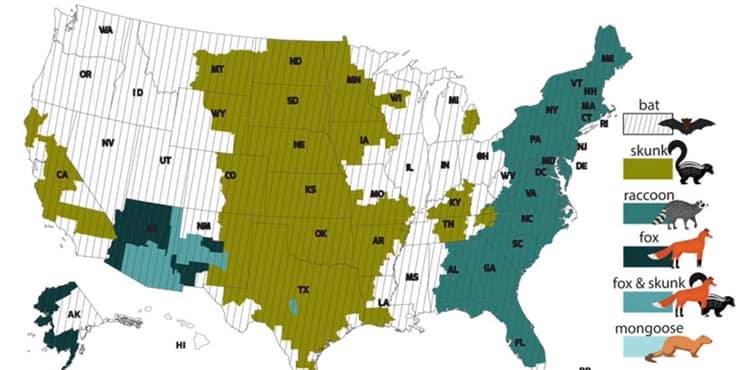Nearly 59,000 people die from exposure to rabies every year.
Everyone has seen and likely cried about (c’mon yes, you did!) Old Yeller. And just like that old movie, rabies is a thing of the past right? WRONG!
Thanks to vaccination laws and programs limiting stray dog packs in the streets, human deaths from rabies are nearly non-existent in the US. Around the world, however, nearly 59,000 people die from exposure to rabies every year.
Rabies doesn’t have to be fatal for humans if exposure is treated before symptoms appear, but once signs are visible, a cure is not likely. Washing a bite wound with soap and water immediately and Post Exposure Prophylaxis injections, or PEP, are highly effective in preventing fatalities when used rapidly after exposure. PEP has come a long way from the old 21 injections in the belly too! Now, 5 injections in the muscles of the arm are administered over a 14 day period. Still unpleasant, but much more tolerable! There are also vaccinations for high-risk personnel, like veterinarians and their staff, that limit PEP to a minimum of 2-3 injections. Close to 40,000 people in the United States are treated with PEP every year due to rabies exposure. It IS out there folks!
What animal do you think of first when you think about rabies spread?
A few decades ago, the primary route of human exposure to rabies was through wild animal contact. In fact, bats are still statistically the most common reservoir of rabies in the US, although it is region dependent (see the map from the CDC on this post). On the pet side of things, in the 1960s, dogs were the most common domestic animal to infect a human. Over the last few years, cats have claimed their place at their top for route of human exposure. Why you ask? Feral cat populations, indoor/outdoor unsupervised time, and lack of vaccination because let’s face it—it’s just a lot harder to stuff a cat in a carrier and bring it to a vet than it is to take Fluffy for a ride.
Be aware! Any warm blooded animal can contract rabies. Vaccinate your pets: This includes cats, horses and ferrets. Report any bite wound from a wild animal or an unvaccinated domestic animal to your doctor and/or the county health department immediately. Stay safe out there!









